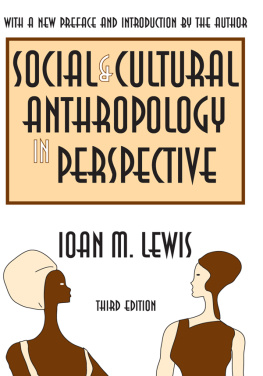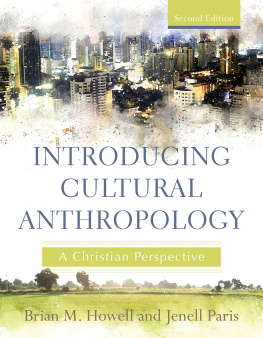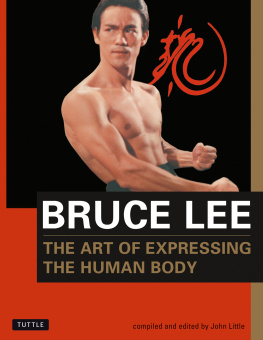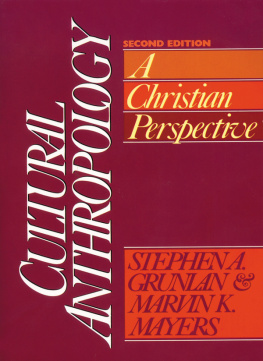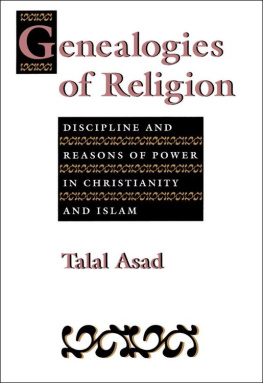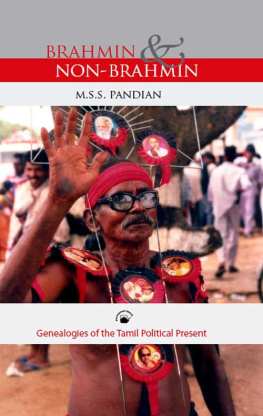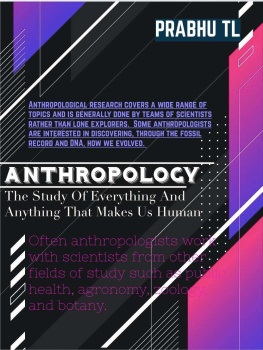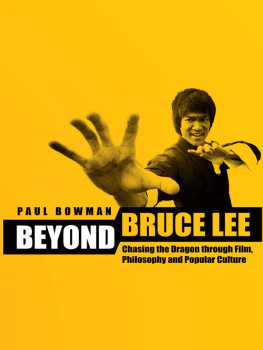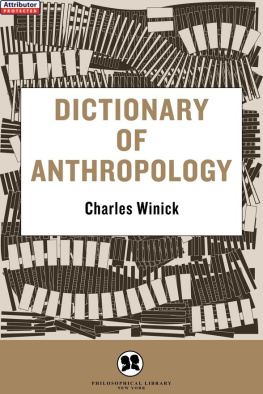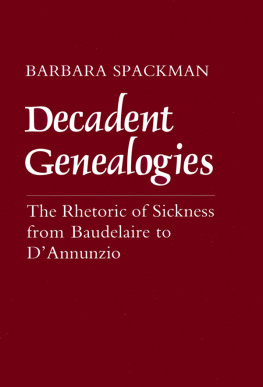genealogies for the present
in cultural anthropology
genealogies for the present
in cultural anthropology
BRUCE M. KNAUFT
Published in 1996 by
Routledge
29 West 35th Street
New York, NY 10001
Published in Great Britain in 1996 by
Routledge
11 New Fetter Lane
London EC4P 4EE
Copyright 1996 by Routledge
This edition published 2011 by Routledge:
Routledge
Taylor & Francis Group
711 Third Avenue
New York, NY 10017
Routledge
Taylor & Francis Group
2 Park Square, Milton Park
Abingdon, Oxon OX14 4RN
Design and typography: Jack Donner
All rights reserved. No part of this book may be reprinted or reproduced or utilized in any form or by any electronic, mechanical, or other means, now known or hereafter invented, including photocopying and recording, or in any information storage or retrieval system without permission in writing from the publishers.
Permission to use material from previously published articles is gratefully acknowledged from Ethos for Foucault Meets South New Guinea (22:391438, 1994); from Critique of Anthropology for Pushing Anthropology Past the Posts (14:11752, 1994); and from Oceania for Like Money You See in a Dream, (64:18790, 1993).
Library of Congress Cataloging-in-Publication Data
Knauft, Bruce M.
Genealogies for the present in cultural anthropology : a critical humanist perspective / Bruce M. Knauft
p. cm.
Includes bibliographical references and index.
ISBN 0415912636 (hardcover) ISBN 0415912644 (pbk.)
1. EthnologyPhilosophy. I. Title.
GN345.K593 1996
306.01dc20
9628099
CIP
Taking stock of recent developments in cultural anthropologyeven selected onesis both a humbling task and an exciting one. I hope this project can be of use to students now grappling with cultural anthropologys complexity as well as to scholars engaging the fields larger direction. This includes rather than omits those worried that the field has been disappearing over postmodern cliffs. But rather than attempting to review seasoned approaches in cultural anthropology, my goal is to evaluate some of its sharp and current cutting edges. As will quickly become evident, I am at once enthusiastic about and critical of these developments. My larger purpose is to configure a perspective that retains the best of anthropologys received past without dismissing the crucial contributions of its present and the potentials of its future.
It may be stressed from the outset that critically humanist sensibilities emphasize critique at least as much as they do humanism. In contrast to the totalizing strains normally associated with humanism, the perspectives herein developed are positional, reflexive, and tactical; they are intrinsically self-challenging and directed in significant ways against their own competing moments of representation. A critically inflected view of humanism hybridizes modern and postmodern sensibilities; it takes positionality seriously even as it also refuses to give up on the importance of objectification and the potentials of intersubjective understanding.
My theoretical arguments are complemented by ethnographic illustrations. This reflects my belief that theory must be empirically responsive and not just abstract; it becomes tangible through detailed ethnography. Many of my examples are from Melanesia, which is the region I know best, but they could be extended readily by analyses drawn from other world regions and areas closer to home. I remain optimistic that cultural anthropology has a future and that its future lies in rigorous ethnography and theoretical innovation. If current discourses in cultural anthropology sometimes deemphasize the value of either ethnography or theory, it can be fruitful to work across their grain.
This book owes much to my Gebusi friends, who taught me practically about the potentials and limitations of crossing the intersubjective divide. It also owes much to students now embarking on anthropologys ethnographic and theoretical minefields. I have had the particular good fortune to have helped orchestrate a vigorous and well-supported graduate program in anthropology. Besides keeping me on my toes, Emorys graduate students have inspired me with a fresh generation of voices and field research concerns and have increased my commitment to combining ethnographic issues with theoretical ones.
I am also indebted to my family and colleagues. My wife, Eileen, and my son, Eric, have not just accommodated but supported my schedule of work, even as it has been sandwiched between bureaucratic and teaching commitments. The Center for Advanced Study in the Behavioral Sciences at Stanford, California, afforded me a splendid fellowship year in 199192, supported by NSF grant BNS8700864 and by Emory University. It was during this year that the seeds of the present work were sown. Since then, my colleagues at Emory and elsewhere have refreshed my perspective and given me a sense of humor about trying to bring so many strands together in one project. Special thanks for feedback and commentary go to Laura Ahearn, Eytan Bercovitch, Aletta Biersack, Robert Borofsky, Jacqueline Brown, Donald Donham, Thomas Ernst, Carla Freeman, Lawrence Hammar, Gilbert Herdt, Ivan Karp, Kathryn Kozaitis, Corinne Kratz, Wynne Maggi, Sherry Ortner, Randall Packard, Renato Rosaldo, Edward Schieffelin, Debra Spitulnik, and James Weiner. The editors at Routledge have been wonderfully supportive, and I thank the Emory Graduate School of Arts and Sciences for support to help defray processing and production costs. I thank you all but the blame is mine.
Note: References include context-salient listings for most authors mentioned without citation in the text.
Has cultural anthropology progressed in recent years, or is it self-destructing? Is ethnography being rejuvenated or destroyed? Given recent expansions in cultural theory and ethnographic writing, it seems as important as it is difficult to step back and view the positions that inform these questions. The task itself is undercut by self-doubt. What view can authenticate and justify such stock-takingas if the author pretends to climb higher than others or to look down omnisciently on the landscape?
Justifications are never really prior; they are ultimately pragmatic. In the present case, I have poignantly felt the tension between what seemed to be a knowable range of sociocultural theory as a graduate student of anthropology in the 1970s and the plethora of theoretical tracks across and beyond anthropology that are so daunting and enriching today. My desire to penetrate and figure some of this contemporary scene is fueled as I see anthropology students searching for guideposts, sometimes in vain. In an intellectual world that sees itself losing coordinates and coordination, it goes against the tide to wish for lost confidence. But in my teaching as well as my writing, I retain the hope that a larger compass of understanding about these developments is possible. Perhaps it is my modernist training refusing to die a postmodern death. But then, I dont find recent developments in cultural anthropology to be nearly as dismal or disintegratingto either fieldwork, theory, or the field of anthropology itselfas more pessimistic views might have it. This book is written in large part to assert and defend this perspective.





